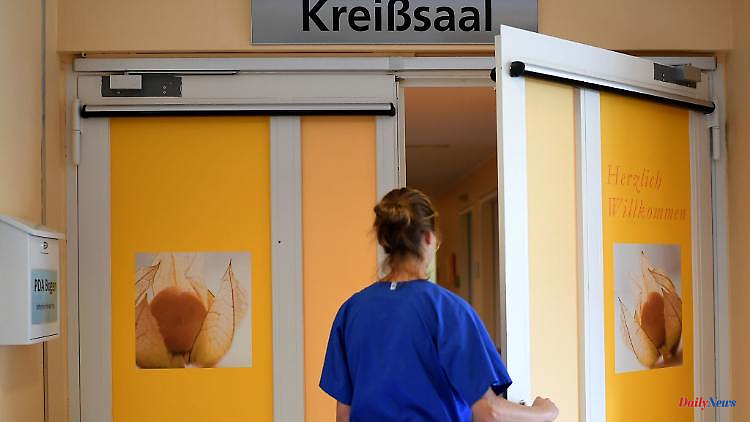In an emergency, it can save lives - but experts disagree as to whether the procedure is actually necessary as often as it is currently used. In Bavaria there is a trend towards more caesarean births.
Munich/Würzburg (dpa/lby) - According to data from statutory health insurers, more babies have been born by caesarean section in Bavaria in the past two years. A spokeswoman said that among those insured by AOK Bayern, the proportion of caesarean births had risen again in recent years: in 2020 it was 34.2 percent and in 2021 it was 34.5 percent. The rate had fallen in previous years - between 2016 and 2019 - from 34.7 to 33.7 percent. More than 4.5 million people in Bavaria are insured with the AOK.
The caesarean section rate for births billed by Techniker Krankenkasse (TK) in Bavaria was 28.9 percent in 2020. "This means that the caesarean section rate in Bavaria has risen for the second year in a row and is one and a half percentage points higher than in 2019," said Christian Bredl, head of TK in Bavaria. "I very much regret that, because before that we had been able to record a continuous decline in this rate since 2016."
According to the TK evaluation, which is based on all billed births of TK insured persons in the period from 2016 to 2021, Bavaria is now back at the level of 2017. TK has almost 1.5 million insured persons in Bavaria and registered 18,455 births last year .
"I hope we can break the rising trend and the rate will fall again in the coming years. That would also be to the advantage of the newborns," said Bredl. "A cesarean section should only be performed when a natural birth would endanger the health or life of both mother and child," he said. "The weaker the medical indication for a caesarean section, the more comprehensively doctors and obstetricians should inform the expectant parents."
Around every third birth in Germany is a caesarean section, as figures from the Federal Statistical Office show. In the past 30 years, the proportion of this surgical procedure in the total number of births has almost doubled. In 1991, only 15.3 percent of women gave birth by surgery.
Achim Wöckel, Director of the Women's Clinic at the University Hospital in Würzburg, emphasized that it is not possible to tell from the figures whether the increase in the caesarean section rate in Bavaria calculated by the health insurers over the past two years is related to the corona pandemic: such statistics have to be looked at over several years, a wide variety of factors played a role. The numbers also fluctuated from clinic to clinic, so the rates also had to be seen and compared "in relation to the institution".
How many caesarean sections are medically necessary - and how many could be avoided is a topic that is often discussed in obstetrics. There are different rates internationally - in Turkey more than half of babies are born by caesarean section, in Finland it is only 17 percent.
Two years ago, under the leadership of the German Society for Gynecology and Obstetrics, guidelines and scientific recommendations for action on caesarean births were published. In it, a recommendation for a specific caesarean section rate was dispensed with.












